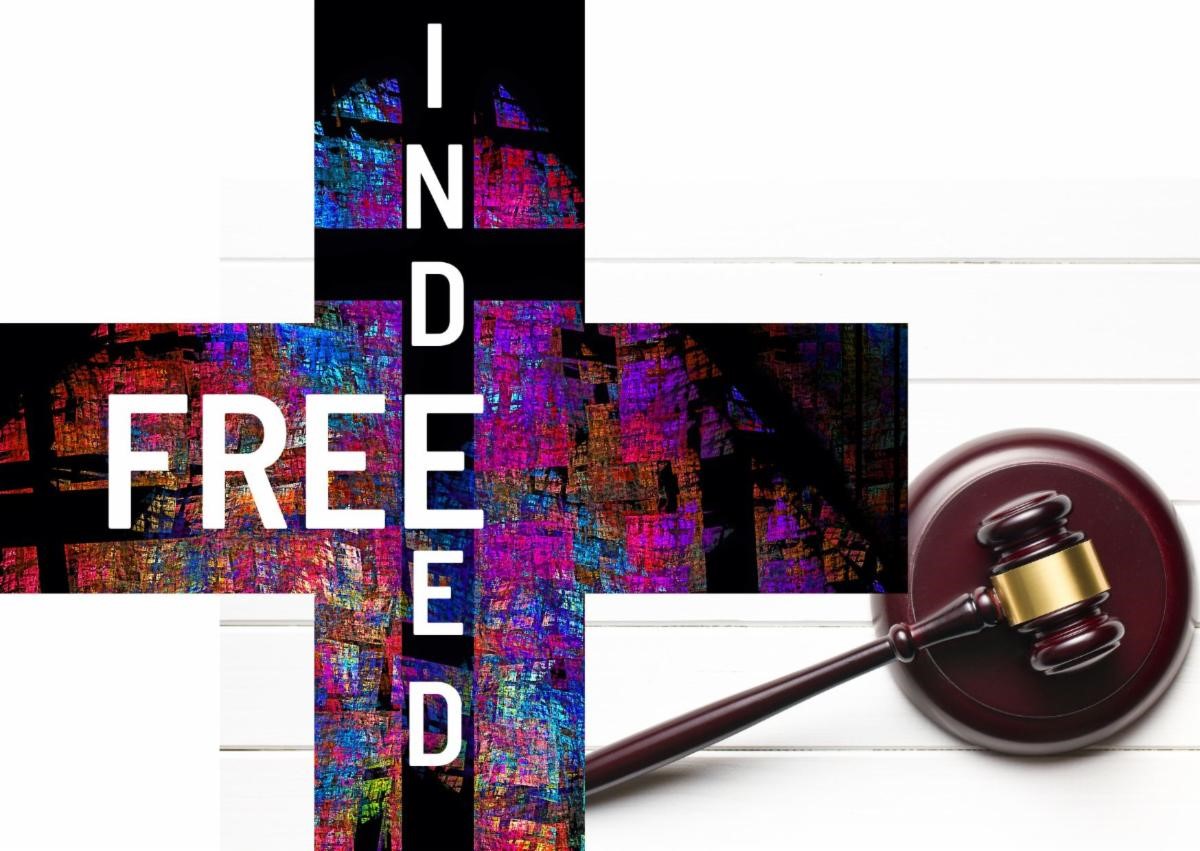
Free Indeed
As I sat in the juror selection pool, a person couldn’t help but wonder what kind of case it would be. And then you start to consider the incredible responsibility of hearing a case and deciding someone’s future, whether they will be incarcerated or freed. In walks the defendant, a picture of normality, an ordinary everyday person. You recall that in our country, we are protected by the Presumption of Innocence and that regardless of the crime, everyone is presumed innocent until proven guilty. This is a remarkable liberty, and we’re blessed to live in a society where this is the law of the land.
And yet part of the process is the jurors are presented with a brief summary of the case, including the accusations against the defendant. And when you hear these accusations, and even though this person is presumed innocent and looks normal, you can’t help but imagine the defendant in some state of guilt or responsibility. I suspect that the more heinous the crime, the harder this preconception would be to shake. And yet, everyone is innocent until proven otherwise.
This is far different when we consider our spiritual case. We, of course, know that we are guilty as charged. We know that we have all sinned and fallen short of honoring God (Romans 3:23); we also know that if you break only one part of God’s Law, you are guilty of the whole thing (James 2:10); this includes showing partiality. We stand before the Judge already condemned. Knowing that you have a guilty verdict against you and you have no one to plead your case would be a terrible situation.
Another question that was asked of the juror selection pool was if we would think poorly of the defendant if they did not take the witness stand? Many people feel that public testimony of innocence is a powerful tool, but it can also lean others toward a guilty verdict. Some lawyers advise their clients to refrain from taking the witness stand to take this issue off the table. You don’t want to provide any evidence of guilt because that might convict you of a crime. And you definitely would like to avoid standing before a jury of your peers and admitting to the crime.
Yet that is precisely what we are called to do in our Christian faith.
1 John 1:6-10 – “If we say that we have fellowship with Him and [yet] walk in the darkness, we lie and do not practice the truth; 7 but if we walk in the Light as He Himself is in the Light, we have fellowship with one another, and the blood of Jesus His Son cleanses us from all sin. 8 If we say that we have no sin, we are deceiving ourselves and the truth is not in us. 9 If we confess our sins, He is faithful and righteous, so that He will forgive us our sins and cleanse us from all unrighteousness. 10 If we say that we have not sinned, we make Him a liar and His word is not in us.”
Wrestle with this thought for a moment. We are found and sentenced as guilty, doomed to die. But God, in His incredible mercy and grace, provides a way to prevent this condemnation, and it is by admitting our guilt. In a paradoxical position, we gain freedom by admitting we are guilty. The thing that would convict us in a human institution is the act that pardons us. In fact, by our own admittance and reliance on Jesus, it is as if we were never guilty in the first place.
Hebrews 10:14-18 – “For by one sacrifice he has made perfect forever those who are being made holy. 15 The Holy Spirit also testifies to us about this. First he says: 16 “This is the covenant I will make with them after that time, says the Lord. I will put my laws in their hearts, and I will write them on their minds.” 17 Then he adds: “Their sins and lawless acts I will remember no more.” 18 And where these have been forgiven, sacrifice for sin is no longer necessary.”
According to His marvelous word, God no longer remembers our guilt. The Judge Himself does not bring the charge against us because it ceases to exist. Notice the beauty of verse 14, God has made perfect (the process is complete) those who are “in the process of” being made holy or sanctified. The purification of our sins is both ongoing and also complete. In our court system, we benefit because we are innocent until proven guilty. Yet for the ones covered in the sacrifice of Jesus, we are guilty and declared innocent when we confess our guilt.
John 8:36 “So if the Son sets you free, you will be free indeed.”